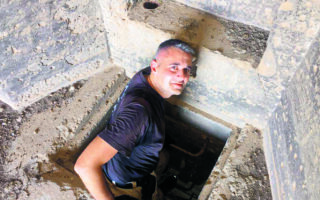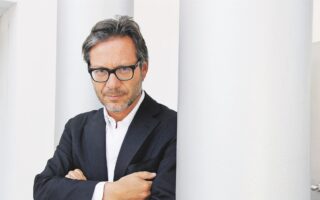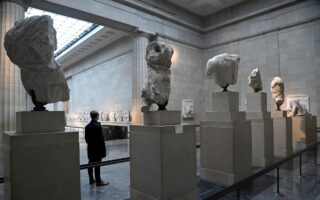‘There is no and can be no “ideal” democracy’
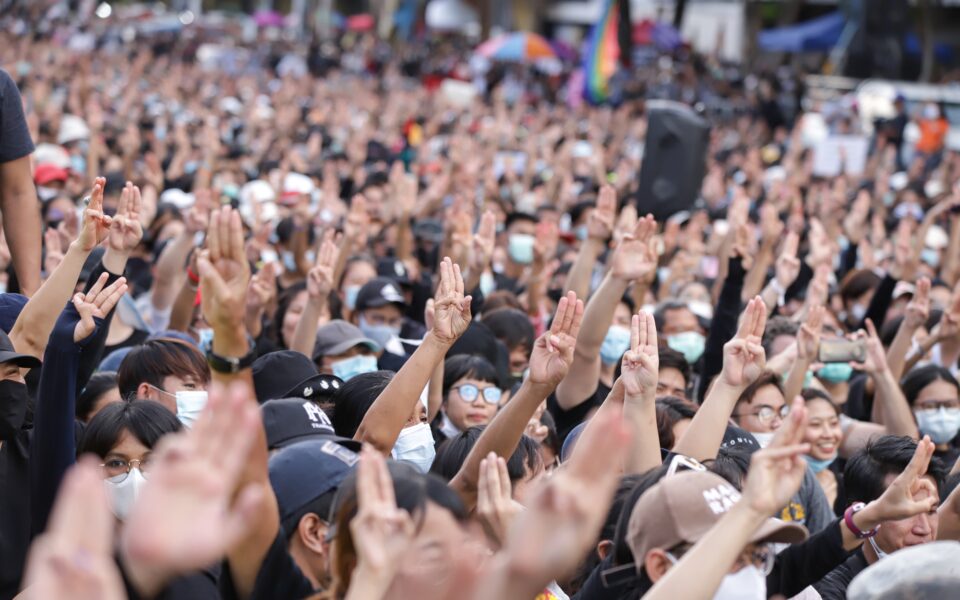
“Democracy is always unfinished business. It is not a recipe for Paradise on Earth,” John Keane, the renowned professor of political science at the University of Sydney, tells Kathimerini. With his works translated into 35 languages, Professor Keane has been described as one of the leading contemporary political thinkers by The Times, delving into the concepts of democracy, the evolution of institutions, and the interaction of polities and social phenomena.
Having read his recent book, “The Shortest History of Democracy,” we talked to Keane about his interpretation of “democracy,” its essential components, and its contemporary cracks by populist tendencies. According to the professor, “democracy, historically, from the time of the early Greek democracies, has been about equality, while it is the enemy of aristocracy, of monarchy, of tyranny, of despotism, of dictatorship.”
Professor Keane, we tend to invoke the term “democracy,” but we ignore its real content. Through your research, how would you define the term “democracy” and what do you consider its key components?
Things are complicated by the fact that today, globally, almost everybody is a “Democrat.” Putin speaks of Russian-managed democracy. Xi Jinping praises the Chinese model of people’s democracy as superior to that in the United States. And so, these conditions are very different than the 19th century in Europe and the then definition of democracy. But the definition of democracy counts for a great deal. Some people say that democracy is simply the self-government of the people. And when those people are asked what is good about democracy? They say that democracy is good because people govern themselves. But this is a kind of tautology, a kind of circular thinking, which is unhelpful.
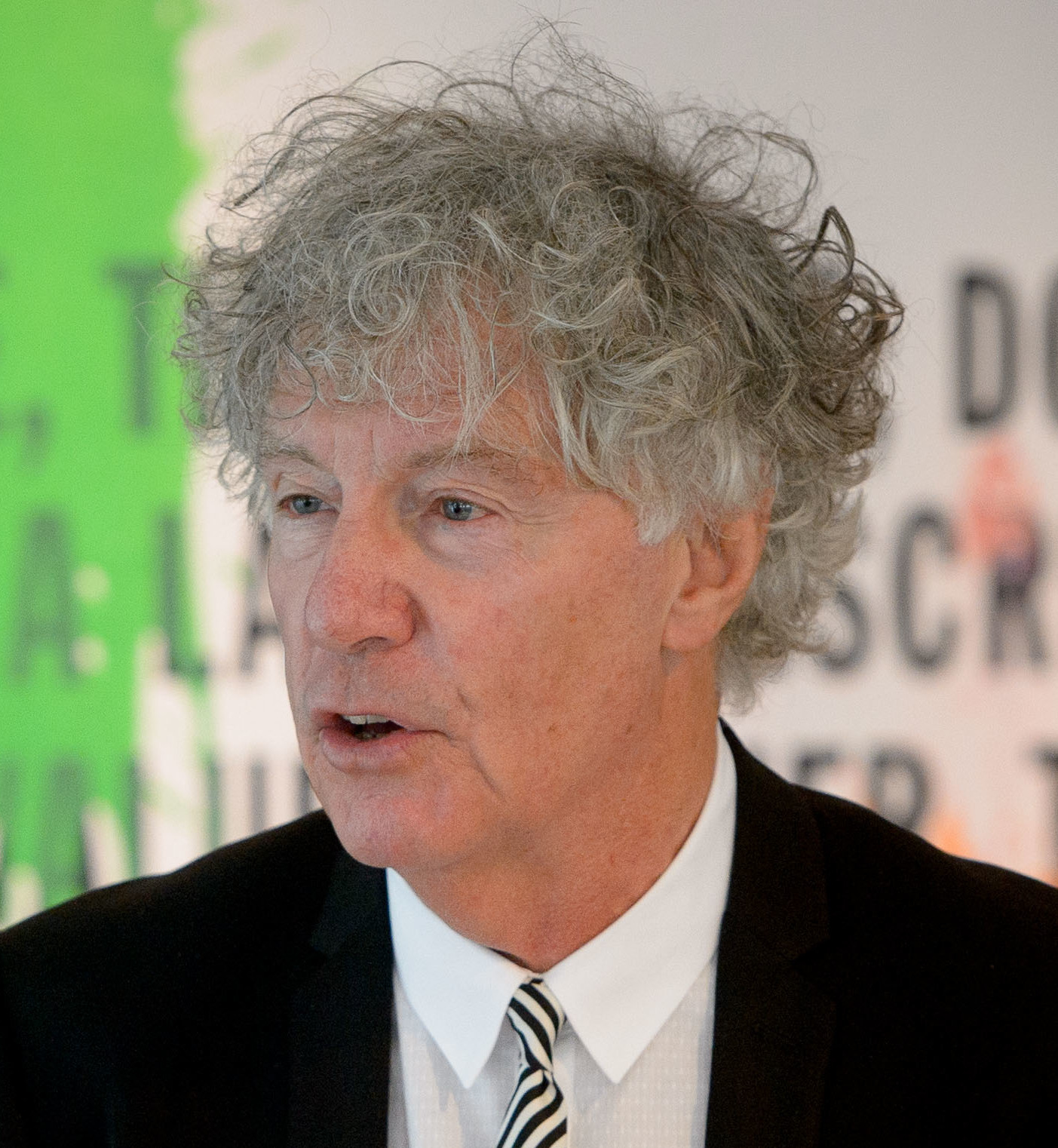 In my writings over many decades, I have reached the conclusion that democracy is a very special form of or a very special way of handling power. Wherever that power is exercised, democracy is the refusal of arbitrary power, that is, power which is exercised whether in the bedroom or on the battlefield. So, in this sense, democracy is not just elections, where, for example, a bad government is removed from office non-violently, by a majority of voters, but it has to do with equality and with the belief that people are just good enough to exercise power responsibly and that when they fail to do that then it is an abuse of power.
In my writings over many decades, I have reached the conclusion that democracy is a very special form of or a very special way of handling power. Wherever that power is exercised, democracy is the refusal of arbitrary power, that is, power which is exercised whether in the bedroom or on the battlefield. So, in this sense, democracy is not just elections, where, for example, a bad government is removed from office non-violently, by a majority of voters, but it has to do with equality and with the belief that people are just good enough to exercise power responsibly and that when they fail to do that then it is an abuse of power.
What inspired you to adopt the “shorter story” approach and how did you find the balance between depth and brevity to capture and transmit the essence of democratic history?
I spent many months worrying my head about the difficulty of writing a very short history. This is the shortest history of democracy ever written. I have to tell you that during my intellectual career, I have experimented with many different genres of writing, and for me, this shortest history of democracy was a challenge to write. The principle that runs through this book is that democracy should be written about democratically and what I tried to do in this book is to capture the depth of the history of democracy, but also to do it in a way that it could be read by people who read books, but are not academics. This has proved to be quite a challenge.
The concept of democracy has evolved over time. How have perceptions and interpretations of democracy changed and how have these influenced its practice?
From the first usage of the word “democracy” in the Greek city-states in the 5th and 4th centuries BCE, “democracy” has constantly referred to equality, to the possibility of people living as equals on Earth. In this book, I work with the idea of a Greek thinker, Cornelius Castoriadis, who spoke about the importance of imaginaries. So, what I try to show in this book is that there have been at least three major reimaginings of democracy.
Its earliest meaning I call assembly democracy. Here, the idea is that democracy is the self-government of people who consider each other as equals. Self-government in the form of public assemblies where, for example, at the Pnyx in Athens, 5,000 adult male citizens gathered in public to make speeches to pass laws by placing stones in a pot or by raising their hands.
Then, during the course of the 18th century “democracy” was reimagined, which is mostly about free and fair elections resulting in the birth of many new institutions, competitive parties, written constitutions, and parliaments. Progressively we have been led to the demand for a free press and the debate on civil society.
All this language and these institutions were new. My idea is that this second form of democracy, “electoral democracy,” came into a very deep crisis in the 1920s and 1930s. In 1941, there were only 11 “electoral democracies” left on the face of the Earth. But then something miraculous happened, it is the reinvention of the reimagining of a third form of democracy, which I call “monitory democracy.”
It was in democracies that the greatest despotisms like Hitler’s and Mussolini’s were born. In your opinion, what causes the death and then the rebirth of democracy?
You are right that the totalitarian regimes of Mussolini and Hitler have much to do with the whole “democratic” ideal. After all, these regimes were born of the struggle for “one person – one vote,” and they were born of the entry of the people onto the stage of history. And those fascist regimes celebrated their power as expressions of people’s power.
In my recent work, I wrote that democracies die when there is an intersection of many trends that converge. There is, of course, the possibility of a catastrophic end of democracy, like what happened on January 6 in the United States, or it can also die more slowly as it did in the Weimar Republic, in Germany in the 1920s. Therefore, democracy can die when there is a breakdown of consensus among political parties, among citizens, and among government officials, in which big business is resistant to changes in which there is a kind of degeneration and a kind of decadence that slowly sets in in the whole political system.
On the other hand, “democracy” is regenerated and restored when there are commitments to greater social equality, when there is a prevention of populist demagoguery, and when civil societies become aware of the need for greater responsibility in their relationship with the biosphere.
How should the “ideal” democracy be structured to avoid its transformation into an anarchic democracy?
Remember that there is no and can be no “ideal” democracy. As democracy is always unfinished business. It is not a recipe for paradise on Earth. The commitment to preventing abuses of power. And in this respect, it is very important in our times not to be excessively pessimistic about the future of democracy.
However, it should be mentioned that there is now talk of a global, anti-democratic counter-revolution and the symptoms are clear, corrupted party systems, politicians who lie, middle-class anxiety, angry underclasses who have no love of democracy, and the rise of populist demagogues. All of these are worrying trends that are threatening the future of democracy. But it should be remembered that there are many counter-trends in our time, like anti-bullying laws, well-governed cities, and of course many gains by women in the struggle for their dignity. So, the times we live in are certainly worrying, but the concerns are offset by positive policies.
Conclusively, I would like to use a phrase from the Greek back cover of your book, “Democracy has a long, eventful past. Does it have a future?”
There is an old proverb, “When humans speculate about the future, the gods begin to laugh.” Let us hope that the gods are not already weeping. We do not know what the future of democracy is and, in my book, I try to emphasize all of the dangers that are confronting actually existing democracies in these years of the 21st century, but it also points to the positive developments.
The “greening” of democracy, as I call it, is an example of this positive counter-trend, the enfranchisement of the biosphere. We could call it the extension of the vote to the biosphere, the growing importance of anti-corruption commissions of independent courts operating within states at the local level, across borders, and in bodies such as the International Court of Justice. These are the counter-trends that led me to write in this book that there is hope for “democracy.”

